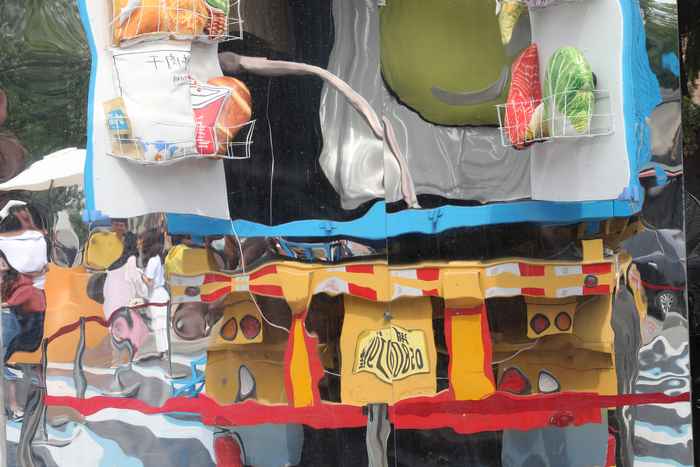Caring Chinese Cinemas
- Date
- 30 November 2023
- Time
- 09:00 -18:30

In recent years, in the slipstream of affect theory, care has been rediscovered as a productive conceptual site to probe into, in the words of the Care Collective, ‘our individual and common ability to provide the political, social, material, and emotional conditions that allow the vast majority of people and living creatures on this planet to thrive – along with the planet itself’ (The manifesto). The inclusion of environmental issues allows for a direct link between care and eco-cinema. But the notion of care is doing more, as it focuses on interdependencies, entanglements, on living with each other, as well as with other species and things. It brings to the front also questions of ethical filmmaking. For example, early 2023 saw the premiere of Mabel Cheung’s To My Nineteen-Year Old Self, depicting the coming of age of six school girls over a period of ten years in Hong Kong. After critique from some protagonists of the movie, she was forced to withdraw it from cinemas. Here, the director allegedly did not care enough about the subjects on screen.
The danger of care is that it becomes an all-inclusive concept, as one can connect it indeed to ecological issues as easily as to ethical ones. This, then, begs the question that motivates this special issue: how can we articulate care in relation to cinema?
The care manifesto is written by UK-based scholars, grounding the analysis clearly in the context of the neoliberal (post-Brexit) state, and the related decline of the welfare state. What happens when we move towards China, where the word neoliberalism does not quite fit that smoothly given the pervasive presence of the state? Does one care differently under the specter of communism?
Furthermore, is ‘care’ ultimately positive? Are there also problems that ‘care’ might bring, aside from its already mentioned conceptual openness. ‘To care’ may also imply an imbalanced power relationship between those who care and those who are being cared for. Or does the case of Mabel Cheung attest to the increased power of the latter, allowing to cancel a movie?
This workshop invites its participants to focus on the relation between care and Chinese cinema, in relation to:
- Ethical filmmaking. For Instance, the ethics of filmmaking and the films’ role in creating a more careful world.
- Care and censorship in China. For instance, is censorship of smoking scenes, queer content, etc. also care in form of parental control? How should it be understood?
- Care for the environment. How does eco-cinema present ways to care for our environment, for our earth? How is this different from eco-cinema from the global North?
- The aesthetics of care. How does care look like, and how does cinema make it feel like?
Schedule
9:00-10:50
Panel 1:
Speaker 1: Mette Hjort
Presentation: Chinese Film Festivals as Sites of Care and Caring: The Case of Hong Kong
Speaker 2: Ma Ron
Presentation: The Making of the People: Hong Kong Documentaries and the Articulation of Political Collectivity
10:50-11:05
15-Minute Break
11:05 – 12:25
Panel 2:
Speaker 3: Patricia Pisters
Presentation: Bodies of Water: Hydrofeminism in Contemporary Chinese Cinema
Speaker 4: Bao Hongwei
Presentation: Trans-formation: Performing Care in Chinese Trans Documentary
12:25 – 13:25
Lunch Break (Location: Room 0.03, BG1, Turfdraagsterpad 9, University of Amsterdam, Amsterdam)
13:25 – 14:45
Panel 3:
Speaker 5: Hu Pengnan
Presentation: Vulnerability of Fear (Care): Catching ‘Gui’ (鬼 ghost) in Chinese Horror Films.
Speaker 6: Pei-sze Chow
Presentation: Tiong Bahru Social Club and How to Engineer Care In Singapore’s Smart Nation
14:45 – 15:00
15-Minute Break
15:00 – 16:20
Panel 4:
Speaker 7: Jeroen de Kloet
Presentation: Queering Our Way Out of the Anthropocene – On care and the work of Zheng Bo.
Speaker 8: Tan Jia
Presentation: Caring the non-human: Chinese ocean documentaries and the submerged aesthetics
16:20 – 16:30
Closing Remarks
16:30 -18:30
Drinks and film